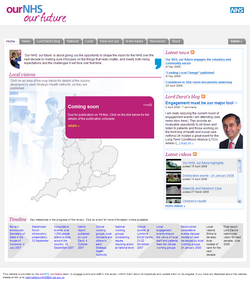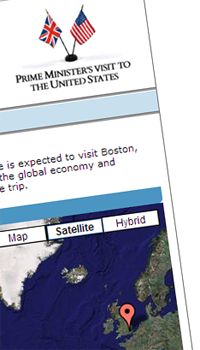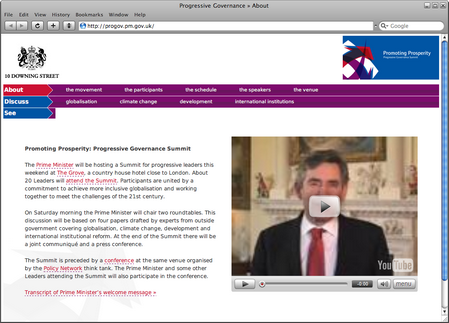Five years ago today, a new blogging platform was released to the world for the first time. WordPress was the successor to b2/cafelog, itself launched in June 2001 – and indeed, it’s amusing to review Cafelog’s readme from 2002, which describes many of the very same functions I’m using on a regular basis. WordPress launched with a redesigned admin interface made ‘as simple as possible, and no more’; and streamlined presentation templates ‘with the latest in simple, easy-to-understand standard XHTML and CSS’.
Five years on, it’s these very same qualities which make it – in my view – such an important piece of code today.
I can’t stress enough how much WordPress means to me. I started just over Puffbox just over a year ago, with the intention of doing mainly advisory work, and rarely getting my hands dirty. But it soon became obvious that WordPress was a platform I could work with. It took care of the ugly, complicated stuff I knew I didn’t understand, letting me get on with the top-layer stuff I knew so well. And it offered users a front-end which allowed them to do virtually everything they (really) needed, without bugging their chums in IT.
The Puffbox proposition changed overnight. Now I’m now just preaching a gospel of open source-led, low-cost, high-speed site development, I’m able to actually deliver it myself.
People come to Puffbox looking for two things. One: rapid development of small-scale websites, which can be managed without an IT department. Two: larger websites with ‘blog-esque’ or ‘2.0’ features as standard – community, comments, inbound and outbound feeds, etc. And invariably, WordPress is equal to the task.
I often reflect on the line from psychologist Abraham Maslow: ‘If the only tool you have is a hammer, you will see every problem as a nail.’ Maybe there are better or neater ways to do what I do. Maybe smarter or more experienced people would do it differently. All I know is, people like what I’m delivering. It’s fast, it’s cheap and it works – often better than the million-quid solution they hate dealing with. And it’s all because of WordPress (plus a basic knowledge of PHP).
To Matt Mullenweg and the gang: thank you.
PS: I’ve finally got round to signing up for the forthcoming UK Wordcamp to be held in Birmingham in mid-July. I’ll probably offer to lead a session on what I do, including details of one h-u-g-e project currently in the works.

 I hinted that there might be more online initiatives coming out of
I hinted that there might be more online initiatives coming out of 